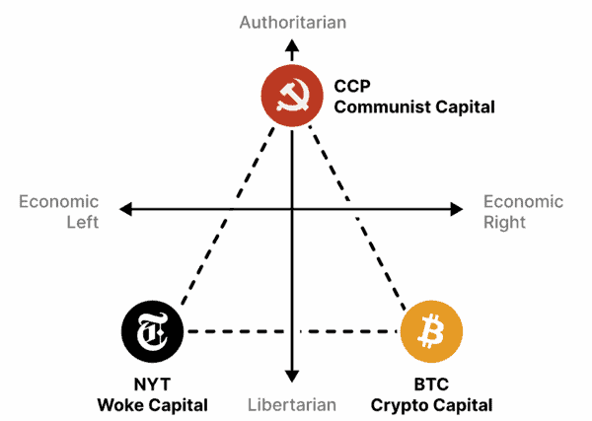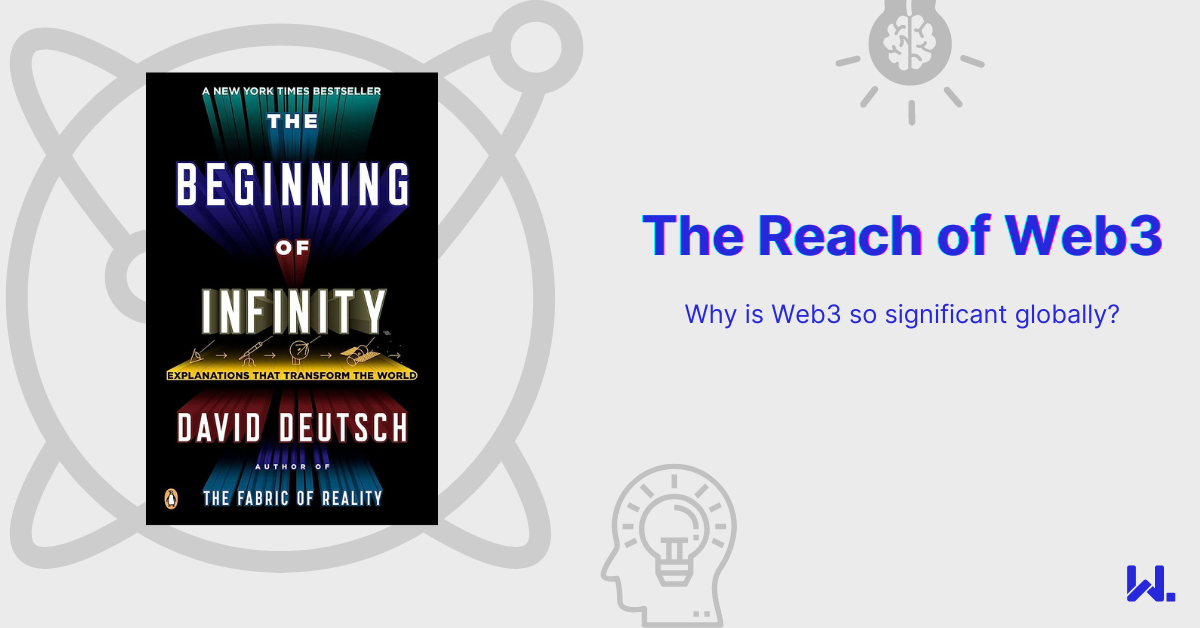Network States
In his recent book, The Network State, Balaji Srinivasan set out his belief about what will be the successor to the nation-state. This will be an entirely new type of virtual state — the network state.
Can Web3 build new countries?
The network state will be built using many technologies facilitating Web3 protocols and communities. Cryptocurrencies provide a native digital currency for them, and decentralised autonomous organisations (DAOs) can be used to govern them. Facts and data can be recorded on blockchains to provide an immutable record of truth as to their beliefs and activities. Community focussed platforms such as Discord can be used for communication between members.
They will also interact with the real world through community ownership of physical assets such as land and property, or by leasing space and facilities for their members. The access to such spaces can be enforced using NFTs demonstrating membership, or via self-sovereign decentralised identities.
'Network states' a stretch?
On the surface, it may appear somewhat far-fetched this idea, where Balaji has been drinking too much #Web3 kool-aid, but he sets out a number of compelling arguments for why individuals and groups within our society will be attracted to such virtual communities.
It starts with the concept of the leviathans in our community and societies — those faceless, omnipotent beings that are both feared and revered equally. In more primitive times it was those leviathans at sea, or monsters on land which were the stuff of legend. Communities formed to protect themselves against such threats, bringing people together and establishing group identities around the shared beliefs they held.
Over time these leviathans evolved, with feudal societies having nobility or lords ultimately accountable to God. God and religion remained the leviathan that all were ultimately accountable to for hundreds of years, with monarchs and aristocrats having ultimate accountability to them and the church throughout much of the western world.
During the 19th and 20th centuries, we saw the power start to shift in favour of the nation-state, which ultimately overthrew God and religion as the all-powerful in our societies. These nation-states controlled by governments, and funded by taxpayers provided a number of services including welfare, economic policy, defence, immigration and justice to benefit their citizens.
Certain nations were also for some time able to exert significant influence on the world stage, heading into war where freedoms they stood by were threatened by other states they did not see eye to eye with. However, in more recent decades with the fallout from the wars in Iraq and Afghanistan, and financial crises, the omnipotent power of these states has faded, especially in the U.S.
Now in the 21st century, we have a tripolar movement spanning authoritarian and libertarian ideologies, and the economic left and right.
- The BTC Crypto Capital pole represents the Web3 community with the various blockchains, protocols, decentralised applications, tokens and currencies built upon them.
- The Chinese Communist Party pole represents those members of the CCP and supporters of it and includes the Chinese Internet.
- The New York Times pole represents the leading news publication in the U.S and the power media represents via cancel culture and the woke movement.
 Source: thenetworkstate.com
Source: thenetworkstate.com
All three poles now exert significant influence in the world, with their differing ideologies, their own currencies (BTC, digital yuan, USD) and sources of truth (the protocol, CCP, NYT).
Against this backdrop, Balaji’s argument is, the populous are drawn to these poles or combinations thereof as this is where the real power lies in the 21st century. Whilst described as BTC Crypto Capital pole, this group is really composed of the proponents and supporters of Web3 and can serve as a base for creating network states.
Network states do not come into being overnight, they begin life as a startup society and must undergo a trajectory not dissimilar to a business startup, focussing initially on addressing a single issue and gathering momentum from this point. After all, nation states even began as a community that evolved into a nation over time.
Stages to establishing a network state
There are four stages to creating a network state — startup society, network union, network archipelago and finally network state.
In the first phase as a startup society, it’s important that it is focused on a single issue, as people are far more comfortable aligning on a single issue as opposed to having religion-like doctrines that can be challenging to adhere to. From here, they start to establish a real community — a network union. This is achieved by establishing a leader, a cryptocurrency, collaboration tools for members, and a clear purpose with calls to action for the community.
Once the community starts to connect to the physical world, they become a network archipelago - This is where spaces are established for their communities, obtaining property titles or leases to create global hubs for their community.
The final and potentially most challenging part of becoming a true network state is establishing diplomatic recognition by existing nation-states. If done correctly, network states could influence real-world states with their efficiencies and strength of community. This is not dissimilar to the reach that the media has with respect to impacting politics or business currently.
It’s important finally to point out that the aim of network states is not world domination like empires, but global recognition of their community.
There are a number of existing communities which are following elements of the trajectory, from startup society to network state but not fully.
- Reddit communities can be considered network unions, but require physical spaces to progress to being an archipelago.
- WeWork is a loose community, however, there is no unequivocal trust between members where they can leave their possessions safely out in the open in any WeWork, or converse openly — there are still plenty of offices in them
- DAO and NFT communities can be if they no longer have the high degree of speculation associated with their cryptocurrencies/NFTs
- Twitter/Facebook/LinkedIn are focussed on any given number of causes dictated by their members, not single uniting causes.
There are a number of projects working to establish network states that are listed on the Network States website.
There is no doubt that the communities that have formed around Web3 protocols and projects are incredibly strong, and we’re already seeing many of them on route to becoming their own network states.
However, reaching the ultimate end goal of being an actual network state with diplomatic recognition will take a lot of work and lobbying from existing states. With time we may get there, but equally, it’s possible nation-states will adopt similar techniques to produce their own sanctioned Web3 communities, in a similar vein to how central banks are looking to (and in some cases already) use blockchain to create their own digital currencies.
It’s a fascinating subject, and I encourage you to read the book to come to your own conclusions on this. Balaji is a great thinker and he makes a detailed case for the network state that has far greater depth than what I have articulated here. There are numerous other themes he highlights, that will likely come up in future articles.

